Expert Tree Care Rooted in Stewardship & Sustainability
At Northwood Tree Care, our certified tree care professionals are committed to the preservation, health, and safety of trees in the Pittsburgh area, including Squirrel Hill, Highland Park, Cranberry, North Hills, and beyond. Our approach is rooted in environmental stewardship, ensuring that our services optimize the benefits of trees and ecosystems as a whole.
We believe in educating property owners and offering recommendations based on research in order to help optimize tree health. Whether it’s pruning to improve aesthetics, emergency storm response, or evaluating risk, our work is guided by safety, sustainability, and responsible care.

Tree Pruning Services
Enhancing Tree Health, Safety & Longevity
Tree pruning is an essential part of maintaining healthy, structurally sound trees. Our certified tree care professionals use expert techniques to remove hazardous branches, improve tree stability, and encourage vigorous, natural growth—all while avoiding unnecessary stress on trees.
Why It Matters:
- Helps prevent hazardous limb failure
- Promotes stronger, long-term tree structure and health
- Supports urban tree canopies in order to benefit the community landscapes
Common Questions:
Why don’t you advertise “trimming trees”?
Because we are not giving trees a “haircut”! Location, size and placement of pruning cuts achieve objectives while optimizing the tree health and improving aesthetics, all guided by industry research.
How often should trees be pruned?
Depending on size, species, condition and location, most objectives are achieved and maintained from professional pruning every 3-5 years. Young trees may require a more frequent pruning cycle for structure, whereas mature and veteran trees may require a longer pruning cycle as they respond to the treatment.
Do you use tree spikes for pruning trees?
Never. We only use advanced spike-free tree climbing techniques to prune trees, in order to reduce harm and optimize tree health.
What are some common pruning errors with mature/veteran trees?
- Large pruning wounds (>4” diameter)
- Excessive volume of foliage removed (>10%)
- Excessive removal of interior branches (“thinning”, “lion’s tailing”)
- Excessive elevation of lower crown
- Excessive deadwood removal
- Removal/damage of habitat features
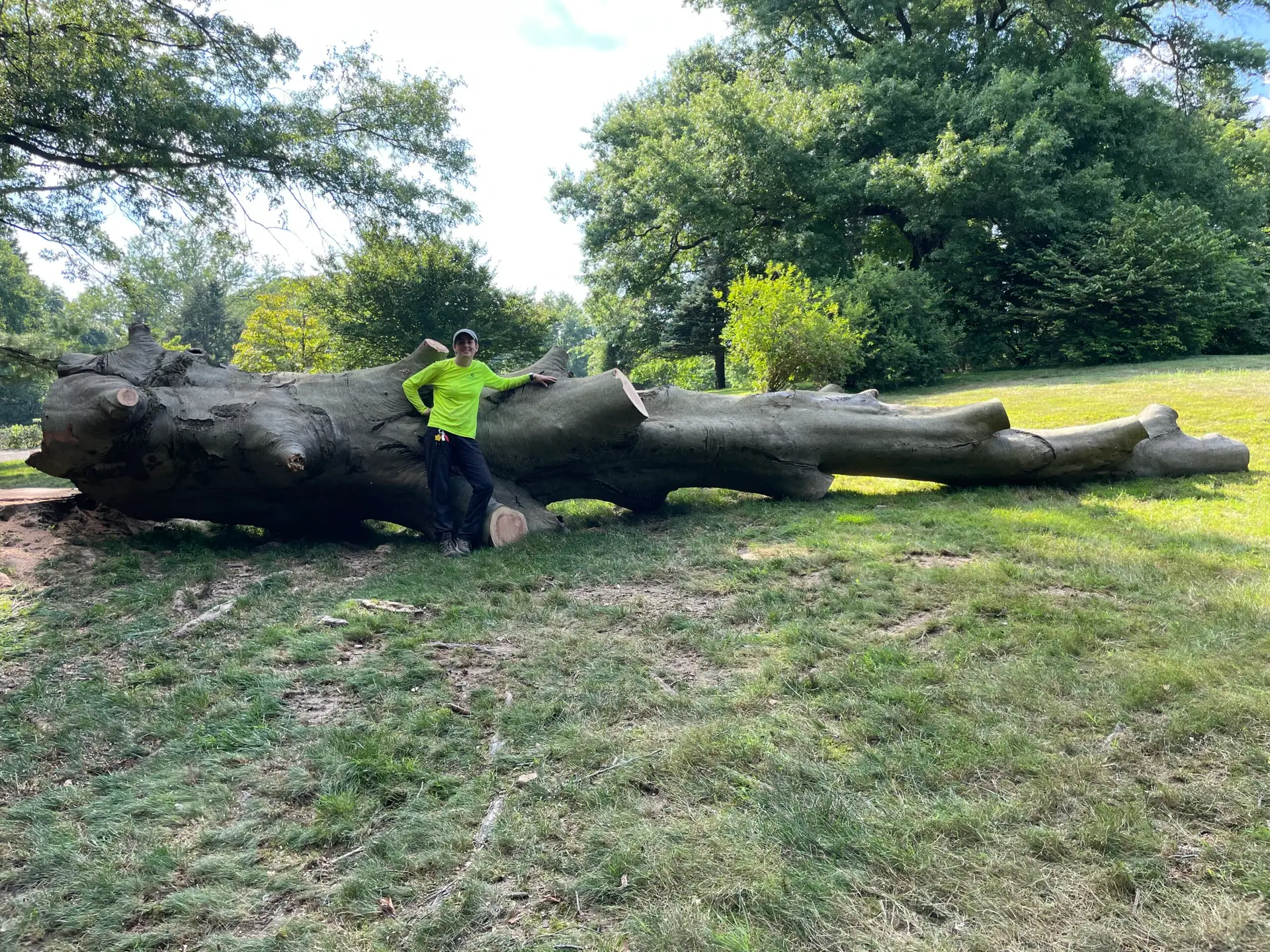
Tree Removal
Ethical & Responsible Tree Removal
At Northwood Tree Care, tree removal is only recommended when it is necessary due to disease, severe structural instability, or safety concerns. Every removal decision is made with the safety of residents, property, and health of the surrounding ecosystem in mind.
Why It Matters:
- Protects people, structures, and neighboring trees from hazardous conditions
- Prevents the spread of disease or pest infestations
- Supports responsible land management
Common Questions:
When is tree removal truly necessary?
When risk cannot be mitigated to an acceptable degree utilizing other tree management techniques. Sometimes, a tree is irreversibly damaged, poses an imminent risk of failure, or has lost vitality and its ability to respond to risk reduction pruning.
Do you offer alternative options?
Yes, we assess whether pruning, cabling, or soil rehabilitation can preserve the tree before recommending removal.
What happens to the tree after removal?
We prioritize sustainable tree management-reusing woodchips as mulch, repurposing wood, or developing plans for replanting.
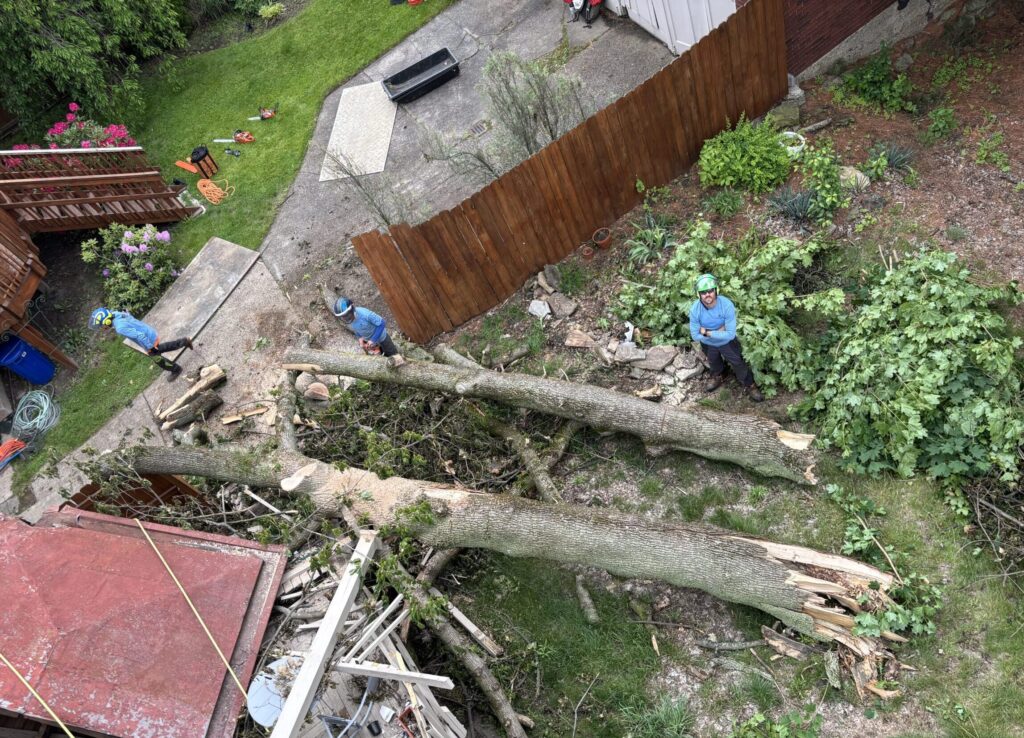
Emergency Storm Damage Response
Quick, Safe Tree Care After Severe Weather
Storms can leave trees in a weakened or unstable state, creating risks for communities and properties. Our emergency response team quickly assesses and removes hazardous trees, always prioritizing safe and environmentally responsible cleanup.
Why It Matters:
- Prevents further property damage and safety hazards
- Protects neighboring trees and landscapes from additional stress
- Restores community spaces after storm-related impacts
Common Questions:
How fast can you respond to storm damage?
We prioritize urgent situations and deploy teams quickly after severe weather events.
Can you assess whether a storm-damaged tree can be saved?
Yes, we always look for options to preserve trees whenever possible.
Does homeowners' insurance cover storm-related tree damage?
In many cases, yes—we provide documentation for claims when needed.
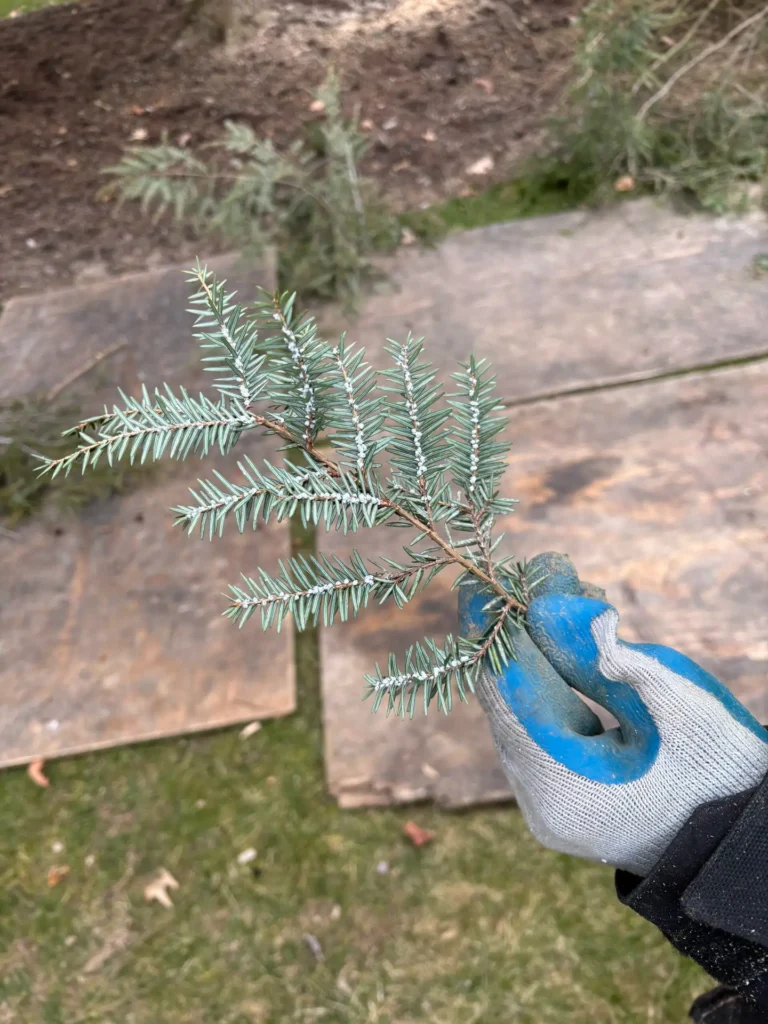
Tree and Plant Health Care
Strengthening Trees & Protecting Ecosystems
Trees need more than just pruning—they require nutrient-rich soil, proper root care, and pest management. Our comprehensive plant health care services focus on disease prevention, improving soil conditions, and supporting long-term health.
Why It Matters:
- Helps prevent diseases and pest infestations
- Encourages strong root development and resilience
- Supports biodiversity and environmentally responsible tree care
Common Questions:
What are signs of an unhealthy tree?
Symptoms include wilting leaves, visible fungus, and unexplained branch loss.
Do you use environmentally friendly treatments?
Yes, we focus on sustainable, non-toxic solutions whenever possible.
Can poor soil impact tree health?
Absolutely—compacted or nutrient-poor soil often leads to tree decline.
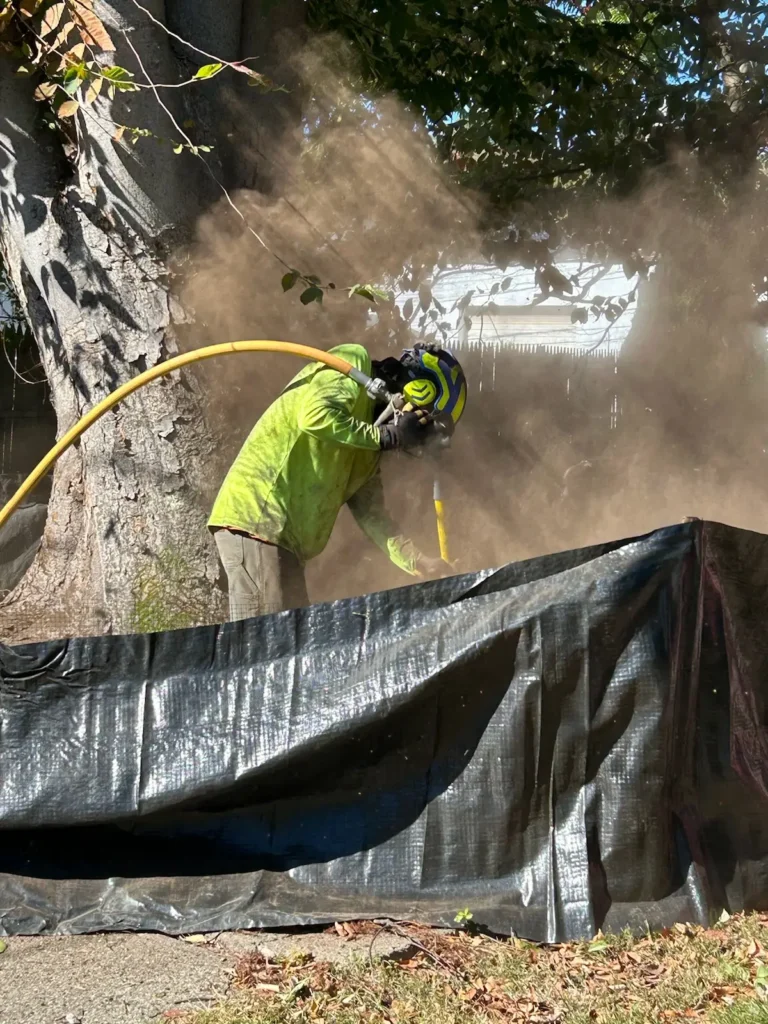
Root Collar Excavations & Soil Management
Improving Soil Health to Sustain Trees
Healthy soil is the foundation of strong trees. Our root collar excavation and soil decompaction services improve root health by addressing compaction, nutrient deficiencies, and poor drainage.
Why It Matters:
- Encourages stronger root systems and better nutrient uptake
- Prevents girdling roots that can restrict the flow of nutrients and water over time
- Helps urban and suburban trees adapt to challenging environments
Common Questions:
How does compacted soil affect trees?
Compacted soil restricts water and nutrient uptake, which often leads to decline of a tree.
What is a root collar excavation?
A technique to uncover buried portions of a tree’s trunk and root system, often with the assistance of air tools in order to reduce damage to live tissue.
Will these services help trees recover from stress?
Yes, improving soil structure can significantly improve tree health.
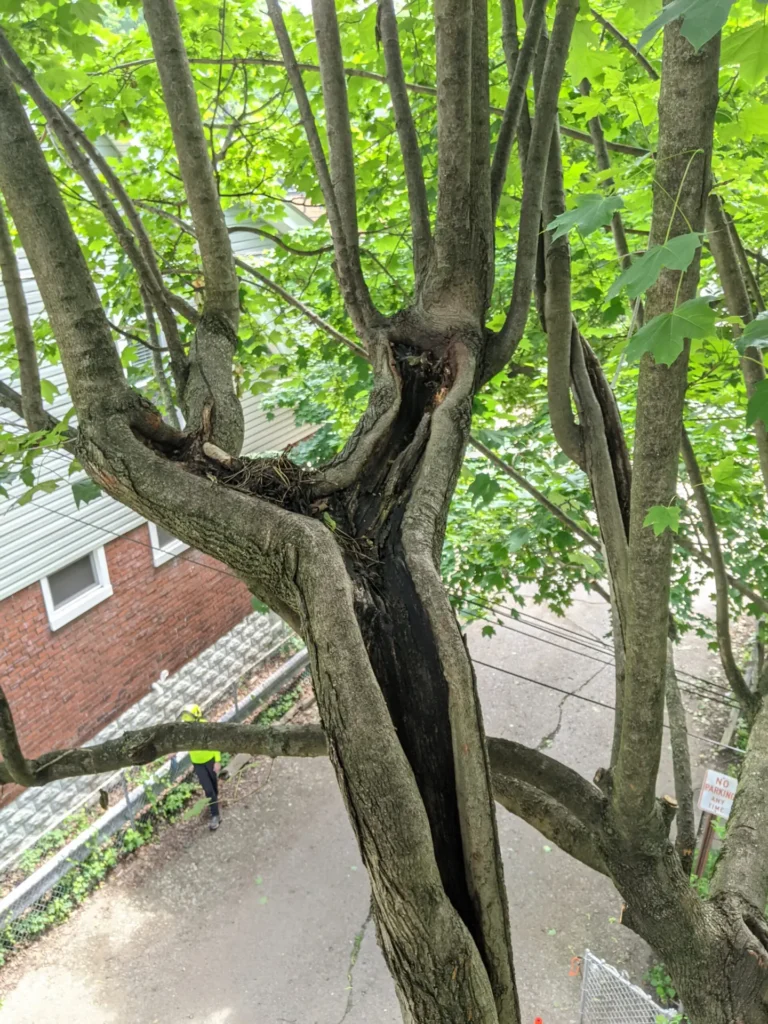
Tree Risk Assessments & Consultations
Science-Based Tree Evaluations
Our certified tree care professionals offer expert risk assessments and tree health evaluations. These consultations help communities make informed decisions about tree preservation, proper tree care, and long-term management.
Why It Matters:
- Identifies tree stability and health concerns
- Helps create sustainable management plans for trees
- Ensures communities and businesses meet safety and environmental standards
Common Questions:
What does a risk assessment include?
We evaluate structural integrity, condition of trees, and potential consequences of failure.
When should a tree be assessed?
If a tree fails, would the impact cause injury or damage? Contributing factors could be signs of stress, decay, or storm damage.
Do you provide official reports?
Yes, as a service we offer detailed written assessments for property owners and tree managers.
Why Choose Northwood Tree Care?
Highly Qualified Certified Tree Care Professionals
Environmental Stewards
Liability Insurance and Worker’s Compensation Coverage
Locally Trusted & Industry Recognized
Get in Touch
Looking for trusted tree care professionals who put trees and the environment first? Contact Northwood Tree Care today to learn how we can help.
Call or Text: (412) 219-3040
